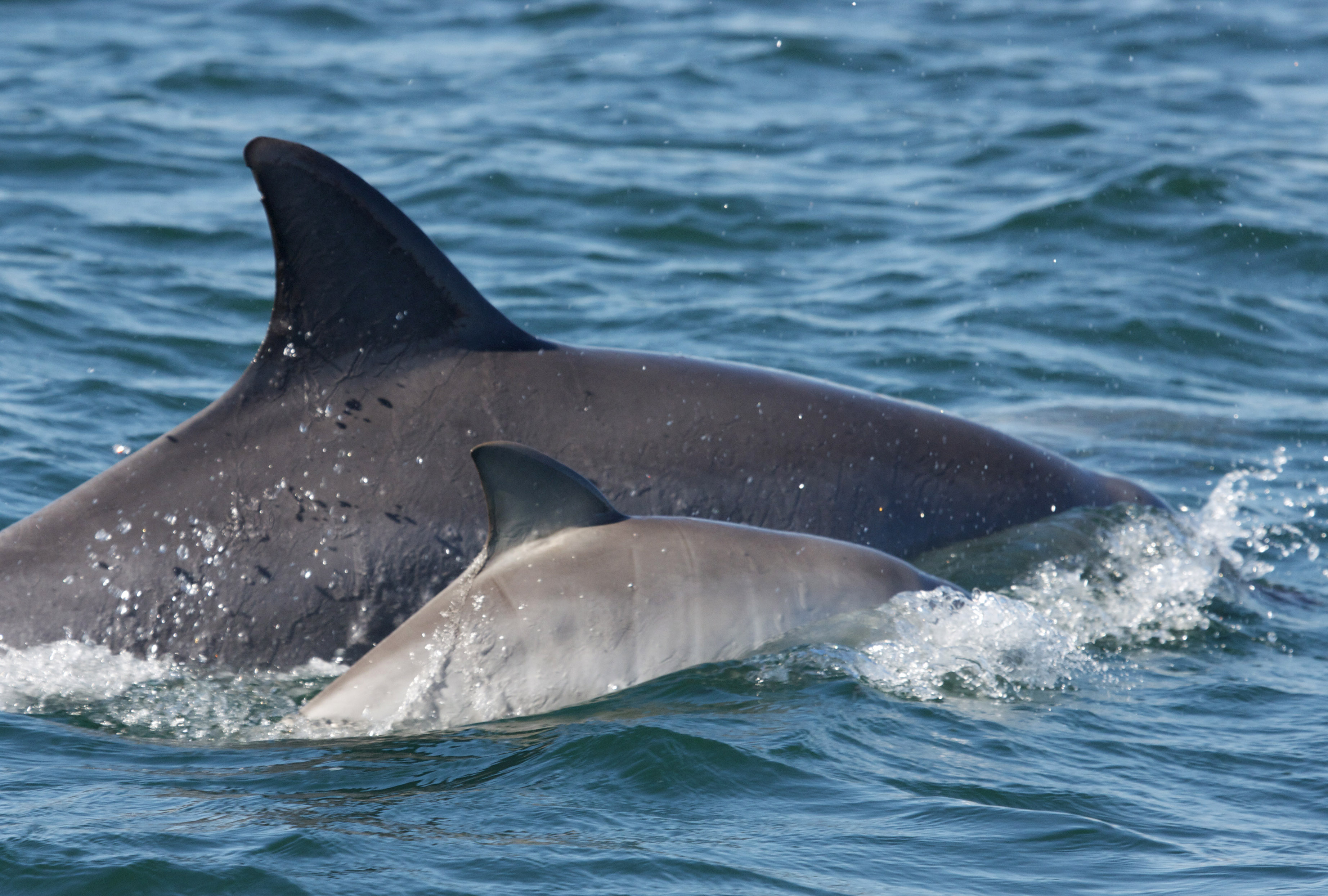Dolphins
Fremantle Ports has been supporting dolphin research for more than 20 years.
Resident Indopacific bottlenose dolphins (Tursiops aduncus) are prevalent in the Fremantle area all year round. Dolphins can be seen in Cockburn Sound and Owen Anchorage, as well as in the Fremantle Inner Harbour and further up the Swan River.
They are highly active, social animals that live together in pods. Bottlenose dolphins can live for more than 30 years.
Dolphin sightings
Fremantle Ports' employees have been recording dolphin sightings on an online register since 2003, with results regularly provided to universities. The Swan River Trust runs
Dolphin Watch as a part of the River Guardians program. Dolphin Watch enables volunteers to register as River Guardians and collect photographs and data on the location and behaviour of dolphins.
Dolphin research
Fremantle Ports has helped to ensure the long-term conservation of bottlenose dolphins in the metropolitan area by providing significant funding towards the Coastal and Estuarine Dolphin Project. This collaborative project, led jointly by Curtin University and Murdoch University, is studying the health and ecology of the dolphins in the Swan River, Inner Harbour and Cockburn Sound, with ongoing support also provided for Dolphin Watch. In addition, Fremantle Ports undertakes specific studies in relation to development projects.
What you can do to help
Become a River Guardian and register on the Dolphin Watch website. If you spot a dolphin in the Swan River, the Fremantle Inner Harbour or in Cockburn Sound, you can register your sighting. The register provides vital information to university researchers.
If you see a dolphin or take a photo, you may be interested in trying to identify the dolphin using FinBook. This catalogue identifies dolphins
that have been seen in the Swan Canning Riverpark and Fremantle Port.
Wildlife in distress
If you see any dolphins or whales in distress, please call the Department of Biodiversity, Conservation and Attractions’ Wildcare Helpline on (08) 9474 9055. The Wildcare Helpline provides 24-hour state-wide referral to a dedicated group of volunteer wildlife carers and professionals for anyone who finds sick, injured or orphaned native wildlife.
Please also observe these simple rules:
- Keep your distance from dolphins and whales – keep at least 30 metres away if you are in the water or 100 metres if in a boat and avoid your vessel separating groups or mothers and calves.
- Never feed dolphins – it is illegal and leaves them vulnerable to entanglement, boat strikes and disease.
- Slow down for dolphins - dolphins often form resting groups in the middle reaches of the estuary, so keep an eye out for dolphins and slow down if you spot any.
- Take your rubbish home - ingestion of plastics, entanglement and poisoning from chemicals is a real risk to whales and dolphins.
- Fish responsibly - marine mammals, particularly calves, can get tangled in fishing line. Make sure you dispose of unwanted fishing line in a rubbish bin and use biodegradable line. Fremantle Ports provides dedicated fishing line bins for this purpose in public use fishing areas.

Find out how you can explore the port or get ferry and cruise info...
